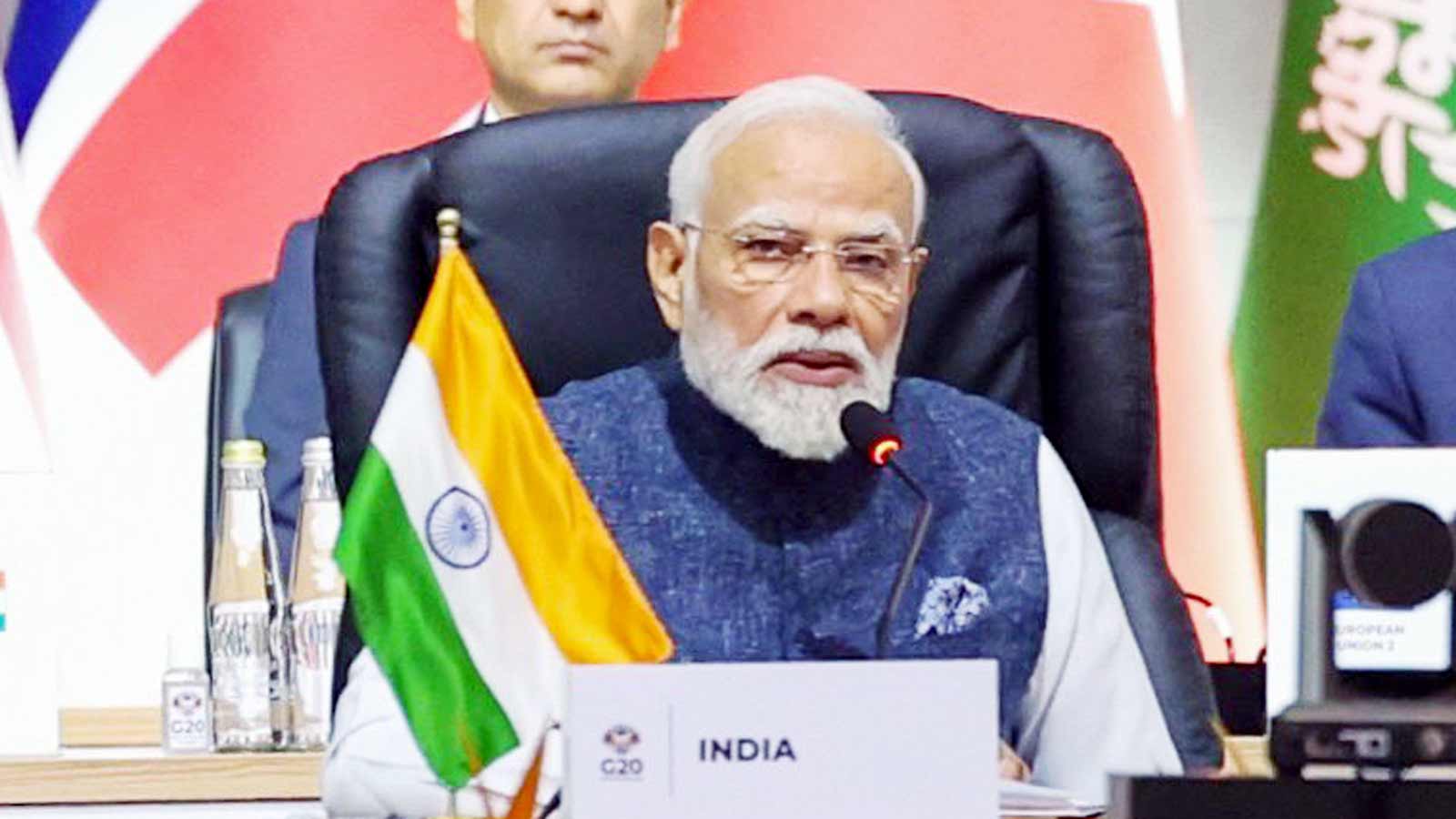Prime Minister Narendra Modi on Wednesday shared an article written by Lok Sabha Speaker Om Birla that reflects on the evolution of India’s Constitution and its role in guiding the country toward becoming a Viksit Bharat by 2047.
Responding to Birla’s post on X, the Prime Minister said that the article explains how the Constitution was shaped by the Constituent Assembly and enriched by the aspirations of millions of Indians.
In a post on X, the Prime Minister’s Office (PMO) said, “In this insightful article, Honourable Lok Sabha Speaker Shri Om Birla reflects on the journey of our nation’s Constitution, shaped by the Constituent Assembly and enriched by the aspirations of crores of Indians. He highlights that the Constitution serves as an ideal guide to take India forward as an Aatmanirbhar and self-confident Viksit Bharat by 2047.”
In his article titled “On the journey to Viksit Bharat, our ideal guide is the Constitution,” Birla outlines the historical and contemporary relevance of the Constitution. He said that the Constitution represents the essence of India’s freedom struggle and the deep understanding of its history held by the Constitution-makers.
“Constitution of India embodies the fire and spirit of our freedom struggle and the depth of understanding of our nation’s history and ethos among our Constitution-makers. Paid my respects to the framers of our Constitution and our founding fathers for guiding its historical journey and shaping its enduring legacy,” says Birla explaining his article.
He notes that November 26 has been observed as Samvidhan Divas since 2015, the 125th birth anniversary year of Dr. B.R. Ambedkar, to reaffirm the values enshrined in the Constitution.
Birla recounts the constitution-making process that began on December 9, 1946, and continued for nearly three years before the Constitution was adopted in 1949. He highlights that the document benefited not only from global constitutional thinking but also from the participation of citizens who sent petitions, letters, and opinions to the Constituent Assembly.
He says that the wide public acceptance of the Constitution at the time of its adoption helped ensure its resilience over the decades. According to Birla, the Constitution is grounded firmly in the principles of liberty, equality, and fraternity, and has evolved through 106 amendments to address emerging needs.
Birla emphasizes key achievements made possible through constitutional provisions—from universal adult franchise in 1950 to judicial interpretations that expanded rights and protected vulnerable groups. He notes that the Constitution has empowered Scheduled Castes, Scheduled Tribes, Other Backward Classes, and tribal communities through special protections and affirmative action.
He adds that Parliament has used the Constitution as a guide to enact socially transformative laws and that the rule of law continues to underpin India’s economic and democratic progress.
Birla says that the Constitution is “not merely a legal document but a moral framework for governance,” which obligates every institution to uphold constitutional values. He concludes by stating that the Constitution belongs to every citizen and should rise above political considerations.
“As we continuously strive to become more just, equitable, progressive and a Viksit Bharat, it becomes imperative to reflect on this day on the Constitution and the values it has espoused, and honour the efforts of its framers by committing ourselves to upholding with even greater vigour the principles that have been at its core,” says Birla.














